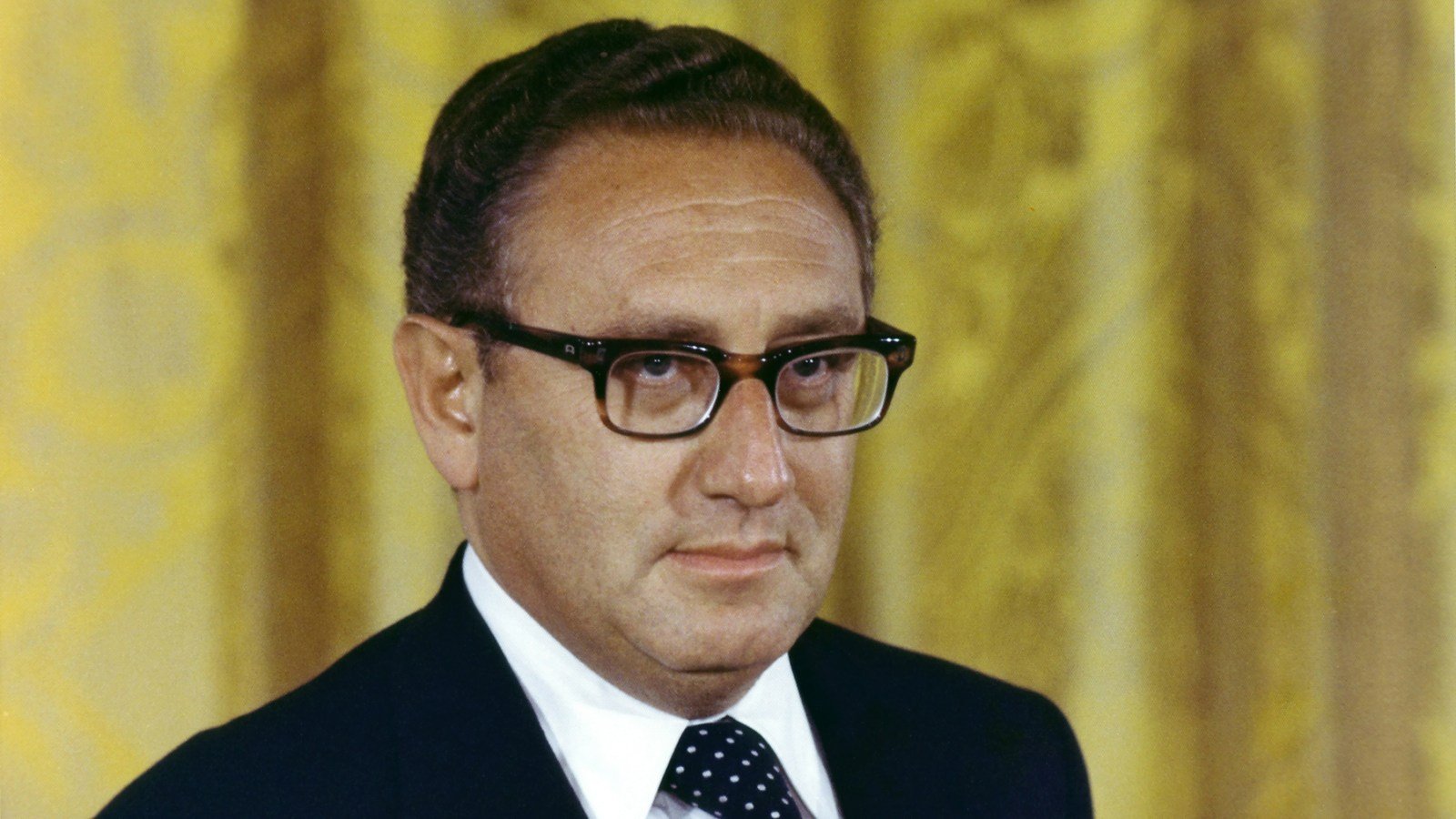Rolling Stone’s Freedom of Information Act request, filed hours after the announcement of his death in November 2023, seeks expedited processing of FBI files related to the former Secretary of State and National Security Advisor to President Nixon.
If this were anyone else I’d criticize Rolling Stone for acting like hungry vultures. But it’s Henry “War Criminal like ten times over” Kissinger. Have at him.
Yeah I’m pretty ok with violating Kissengers privacy, there’s exceptions to all rules and he’s fucking one of them on this front. Glad he’s fucking dead, I’m gonna get drunk today just to celebrate it… again
Considering how big a piece of shit Henry Kissinger was…
This should be interesting.
Edit: In case anyone is having trouble with the website on mobile (I was) I pasted the article content below:
In response to a lawsuit by Rolling Stone and National Security Counselors, the Department of Justice has turned over two tranches of FBI documents related to former Secretary of State Henry Kissinger.
Rolling Stone’s Freedom of Information Act request, filed hours after the announcement of his death in November 2023, seeks expedited processing of FBI files related to the former Secretary of State and National Security Advisor to President Nixon. Kissinger is widely considered to be a war criminal for his role in the bombing of Cambodia, a coup in Chile, and massacres in East Timor and Bangladesh, and his legacy remains controversial among historians despite his bipartisan embrace by Washington, D.C. power players over the last half century.
While a historic figure in American foreign policy, Kissinger had an impact on American diplomacy right up until his death. After his death in late 2023, Secretary of State Anthony Blinken lauded the former Nixon advisor and revealed that he had sought Kissinger’s counsel ”as recently as about a month ago.”
“Even after only two releases, we’re already learning new things about one of the most polarizing American public figures of the last hundred years, and that’s just from the archival records,” said Kel McClanahan, an attorney at National Security Counselors representing Rolling Stone. “This is a man who single-handedly shaped much of post-WWII US foreign policy and kept his fingers in every foreign relations pie up until his death, and we will keep pursuing the truth and our right to learn it as soon as possible, not when the FBI feels like telling us.”
The Department of Justice has released two batches of documents thus far in response to Rolling Stone’s suit. The documents, which cover the background investigations into Kissinger throughout successive administrations, illustrate the extreme deference shown to the former Nixon foreign policy strategist, despite severe lapses in ethics and his role in the illegal wiretapping of an employee.
In 1969, Kissinger instructed the FBI to wiretap one of his deputies on the National Security Council, Morton Halperin, without a court order based on the false belief that Halperin had leaked news of the Nixon administration’s bombing of Cambodia to the New York Times.
Halperin learned of the wiretapping in 1973 as the Watergate investigations unraveled the Nixon presidency, and he filed a lawsuit against Kissinger.
But the FBI appears to have paid little mind to the suit when reviewing the then-secretary of state’s security clearance that year. In files released by the Department of Justice, the FBI notes glowing reviews about Kissinger’s character and judgment from luminaries like Sen. Ted Kennedy (D-Mass.) and Harvard foreign policy scholar Samuel P. Huntington. Tucked into a sole paragraph labeled “miscellaneous,” agents noted the existence of the suit and that it was “pending at the present time.”
Kissinger received his clearance, which many successive administrations continued to grant him over decades. But a court found that the wiretapping of Halperin was illegal and a violation of his Fourth Amendment rights. After a nearly 20 year long lawsuit, Kissinger and his former deputy settled the case in 1991 following an apology letter from the late strategist and diplomat.
Reached by phone on Friday, Halperin was forgiving of his former boss.
“He believed — and with reason — that this was something that had been done by every president in the postwar period and continuously by the FBI,” says Halperin. “The attorney general signed off on the wiretap, so I think he did not think that this was not legal.”
“The apology letter, we actually worked on it together,” Halperin explains. “We reconciled for a while but he seemed more distant after that. I was always ready to reconcile and friends were constantly trying to get us together. It never really quite happened and I’m not sure whether he really didn’t want to reconcile or was just too busy and had other priorities.
The files indicate that the FBI in particular could be sensitive on the subject of Kissinger’s security clearance. Cable traffic from the Bureau released in response to Rolling Stone’s lawsuit detailed a 1973 incident in which retired Marine Corps Col. Mitchell Paige, a recipient of the Medal of Honor for his heroism in the Guadalcanal in World War II, said that FBI Director J. Edgar Hoover “would never grant Henry A. Kissinger, now Secretary of State, a top secret clearance,” adding that “Hoover did not trust Dr. Kissinger and considered him to be a threat to the United States.”
The incident took place in a private setting among individuals outside of government who weren’t privy to the director’s thoughts, much less Kissinger’s. But the files indicate that the Bureau was sensitive enough about criticism on the subject that the Special Agent in Charge of the San Francisco field office planned to ask Paige to “cease making these statements” and inform him that the FBI does not “clear” anyone.
Paige, the FBI later noted, had a history of intemperate remarks, including a 1961 ”statement that Earl Warren, then Chief Justice of the Supreme Court, should be hanged.” The Bureau drily noted that “He subsequently apologized for having made this statement.”
I’ll never understand politicians’ willingness to slob Kissinger’s knob every fucking chance they could. The dude sucked.
Wait, Edgar Hoover thought him to be a threat? Of all people who I thought would have loved Kissinger, he was near the top
I guarantee you it was because Kissinger was Jewish.

Dr Henry Killinger, and this is my magic murder bag
Rolling Stone is turning into some good Journalism, these last few years…
( I’ve no idea when the change happened:
it’s just that in the past few years I’ve noticed this change, from what they’d been when I was younger, which was entertainment-industry centered )
_ /\ _
FBI: “ok here you go”
RS: “it’s just pages with everything redacted but the word the”






